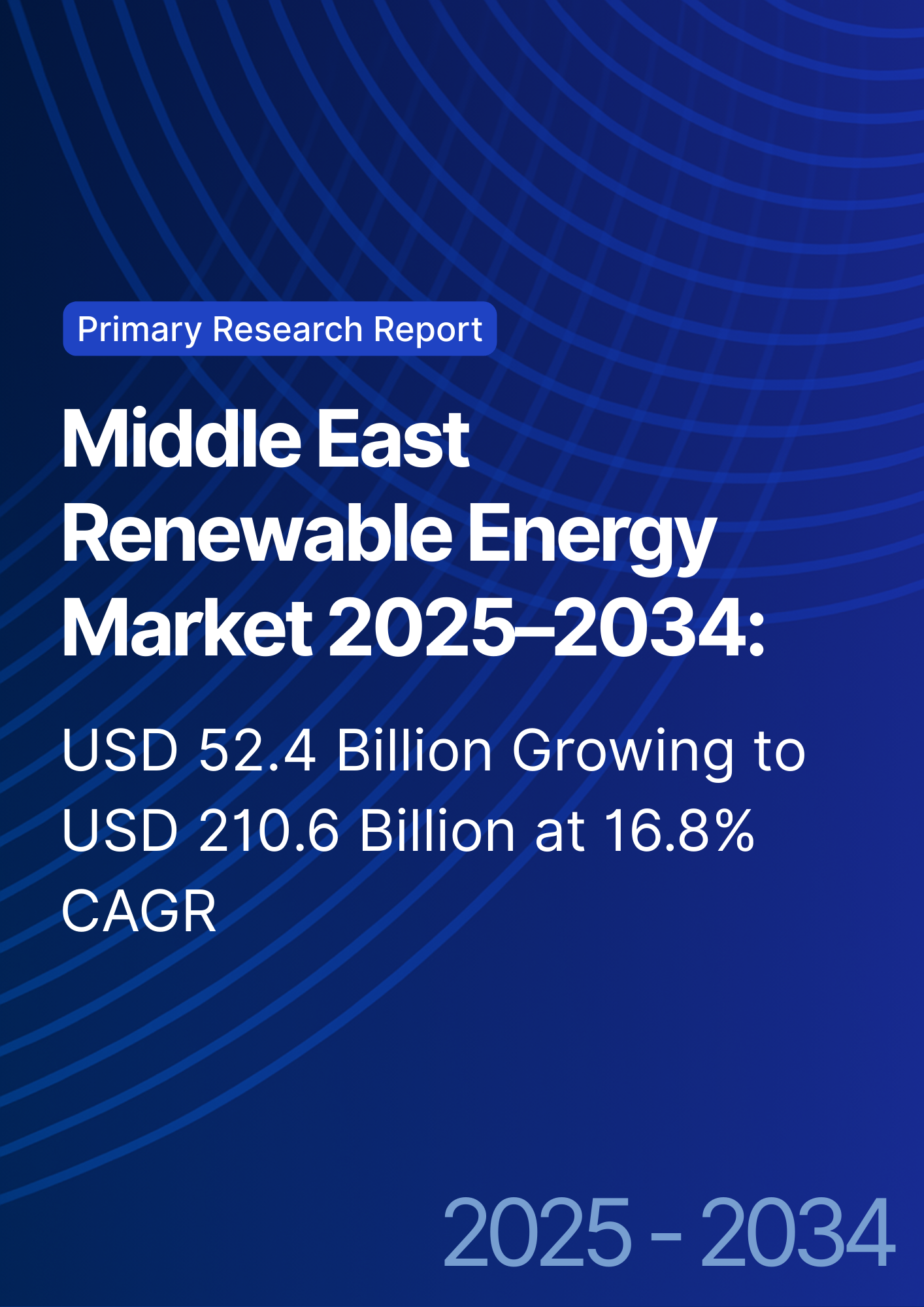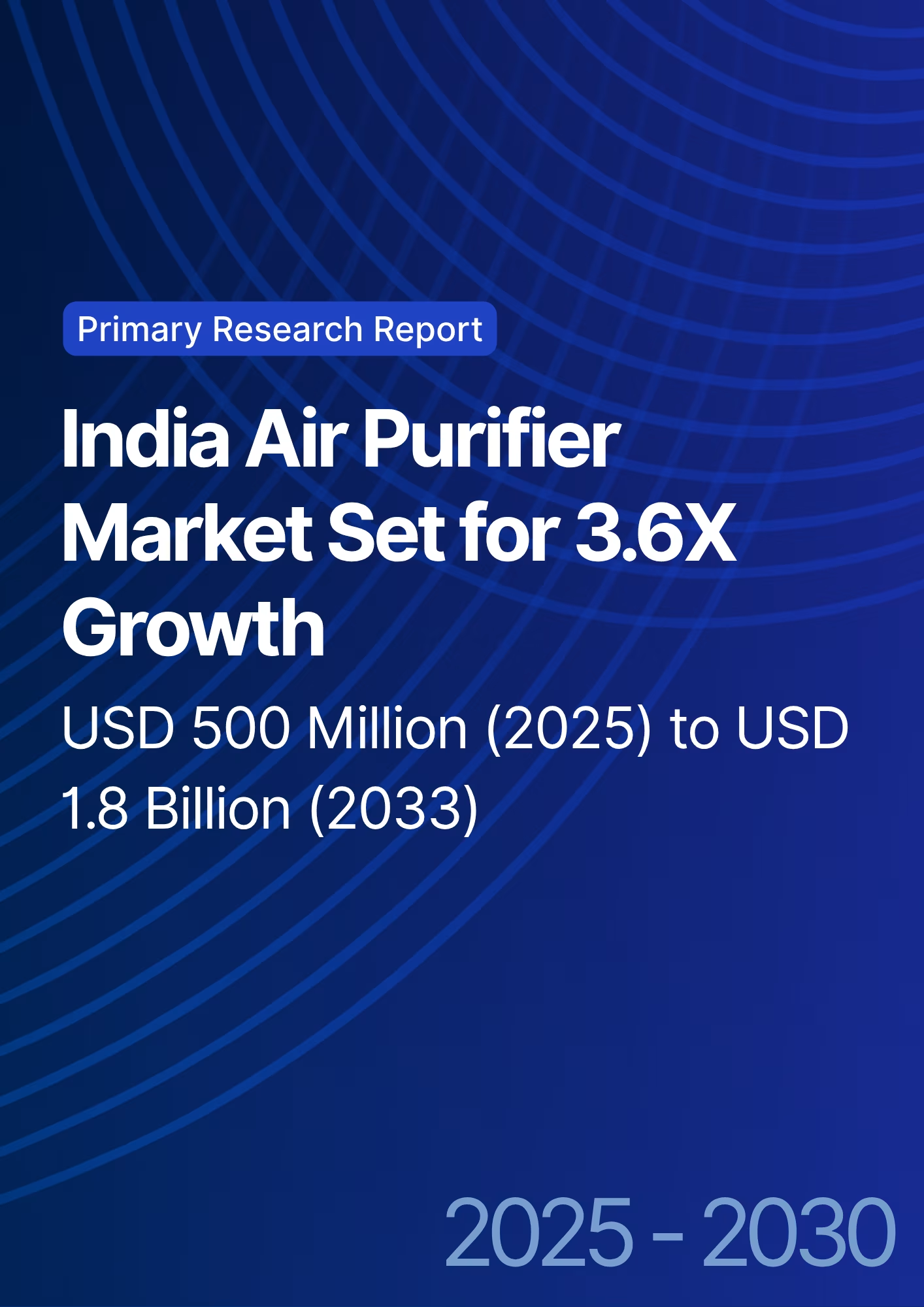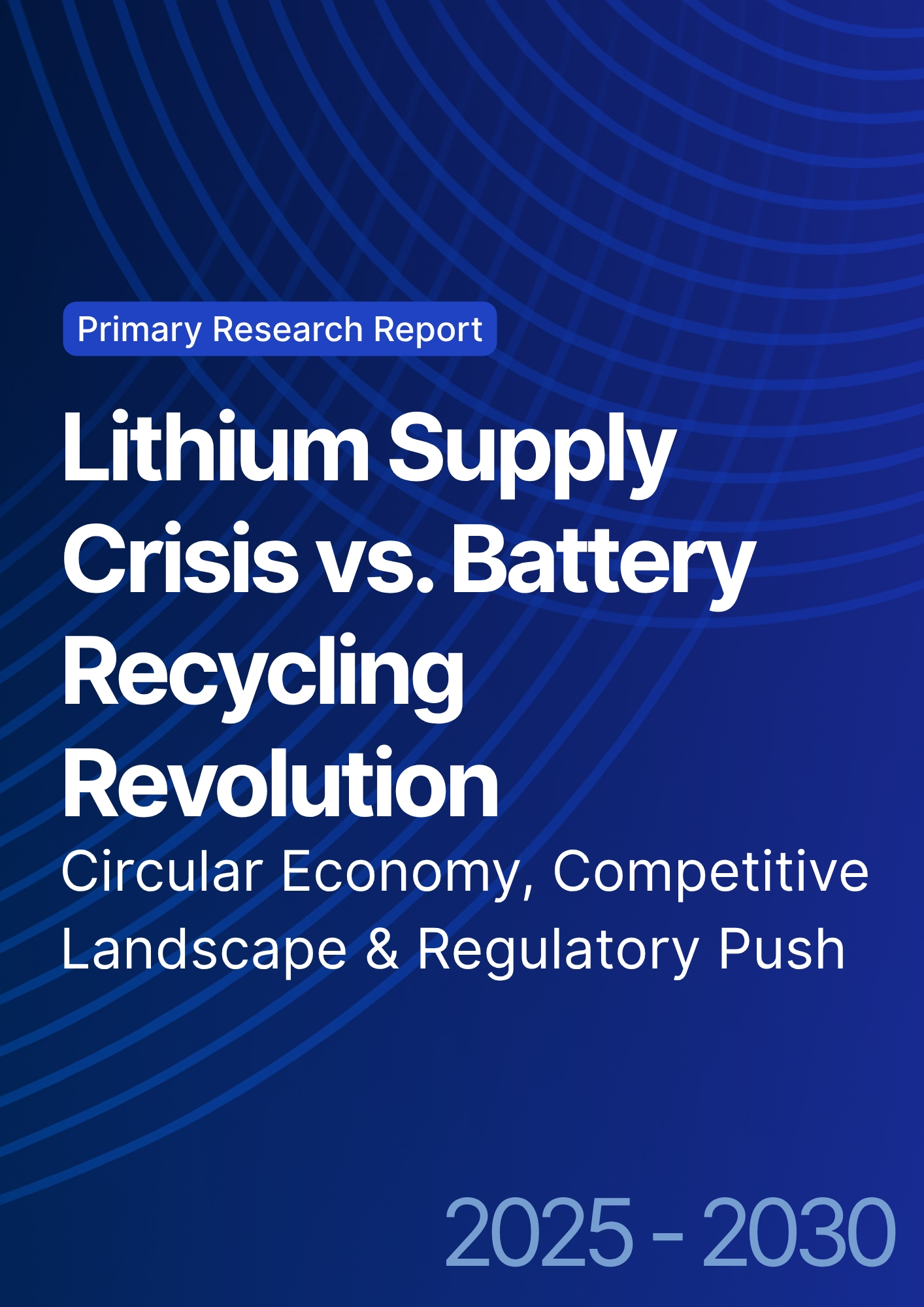

68 Circular Road, #02-01 049422, Singapore
Revenue Tower, Scbd, Jakarta 12190, Indonesia
4th Floor, Pinnacle Business Park, Andheri East, Mumbai, 400093
Cinnabar Hills, Embassy Golf Links Business Park, Bengaluru, Karnataka 560071
Connect With Us
Advanced Biofuel Production Cost Benchmarking: Feedstock Logistics & Conversion Efficiency
The production of advanced biofuels has become a critical component of North America's renewable energy strategy. As the demand for sustainable energy sources grows, biofuels derived from non-food feedstocks are gaining prominence. This report explores the cost benchmarking of advanced biofuel production, focusing on the impact of feedstock logistics and conversion efficiency. By 2025, the advanced biofuel production market in the USA and North America is projected to reach $20.5 billion, growing at a CAGR of 12% from 2025 to 2030. This report delves into key areas such as feedstock availability, transportation costs, conversion efficiency, and emerging technologies that drive cost reductions. The report highlights trends in biofuel feedstock logistics, including the challenges and solutions for optimizing supply chains, and discusses advancements in conversion technologies that are expected to improve efficiency and lower production costs in the coming years.
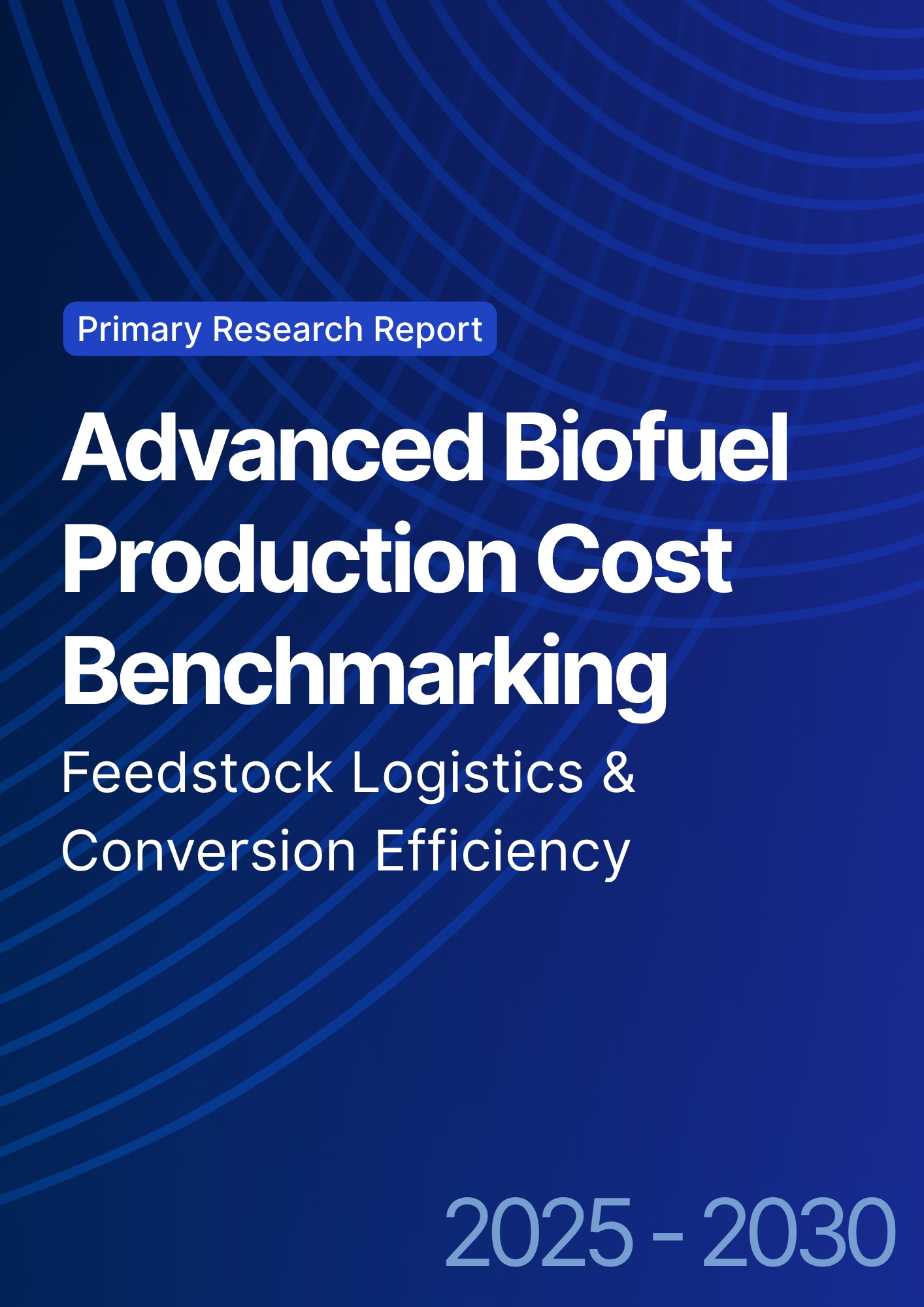
What's Covered?
Report Summary
Key Takeaways
1. The advanced biofuel production market in the USA and North America is expected to reach $20.5 billion by 2025, growing at a CAGR of 12% from 2025 to 2030.
2. Feedstock logistics costs will account for approximately $5.6 billion in 2025, representing a significant part of the biofuel production cost structure.
3. New technologies in conversion efficiency are expected to improve production efficiency by 15% from 2025 to 2030, lowering overall biofuel production costs.
4. The cost of producing advanced biofuels will be around $1.2 per liter by 2025, driven by improved feedstock utilization and more efficient conversion processes.
5. The top three biofuel producers will capture 40% of the market share by 2025, as they invest heavily in technology and optimize production costs.
6. North America is expected to use 200 million metric tons of feedstock annually by 2025, with feedstock logistics becoming a critical component of biofuel cost structures.
7. Government subsidies and incentives in the U.S. are expected to exceed $3 billion annually to support biofuel production and promote renewable energy adoption.
8. Advancements in feedstock logistics, such as better transportation networks and storage solutions, will play a key role in lowering production costs and ensuring consistent supply.
Key Metrics
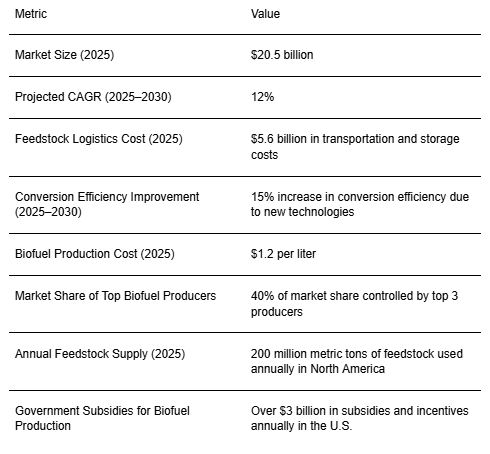
Market Size & Share
The market for advanced biofuel production in North America is projected to reach $20.5 billion by 2025, growing at a CAGR of 12% from 2025 to 2030. This growth is driven by increasing demand for renewable energy sources and improvements in conversion efficiency and feedstock logistics. By 2025, 40% of biofuel production will be sourced from advanced biofuels, such as cellulosic ethanol and algae-based biofuels, further diversifying the biofuel market.

Market Analysis
The advanced biofuel production market is experiencing strong growth, driven by improving feedstock logistics and increasing demand for sustainable energy sources. The CAGR of 12% from 2025 to 2030 is indicative of strong market adoption, particularly as technology advances to improve conversion efficiency and lower production costs. By 2025, 200 million metric tons of feedstock will be used annually for biofuel production in North America. The integration of more efficient conversion processes will help reduce costs and enhance the feasibility of advanced biofuels as a competitive energy source.
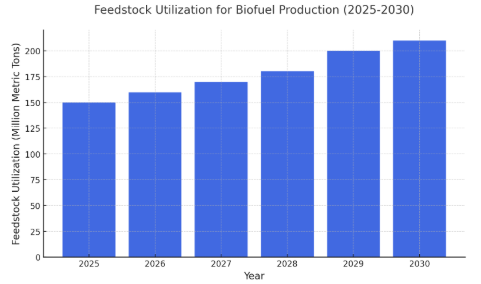
Trends and Insights
The key trends driving the growth of the advanced biofuel market include the increasing importance of sustainable feedstocks, such as non-food crops and algae, and advancements in conversion technologies, such as enzymatic hydrolysis and gasification. Moreover, improving feedstock logistics, such as reducing transportation and storage costs, will be critical to lowering production costs. The biofuel industry is also adopting AI and automation to optimize production and reduce waste, thereby improving overall cost efficiency.
Segment Analysis
The primary feedstocks for advanced biofuel production include cellulosic biomass, algae, and agricultural waste. The choice of feedstock plays a critical role in determining the production cost and efficiency. Technologies such as algal biofuel production and cellulosic ethanol are gaining significant attention due to their ability to produce higher yields with lower environmental impact. These segments are expected to grow rapidly by 2025 as more players enter the market with innovative feedstock solutions.
Geography Analysis
In North America, the U.S. is leading the way in advanced biofuel production, with significant investments in research and development for cellulosic ethanol and algal biofuels. Other regions, such as Canada and Mexico, are gradually adopting advanced biofuel technologies as they seek to meet renewable energy goals. While the U.S. leads in biofuel adoption, Europe is also making strides, particularly in Germany and France, which are investing heavily in biofuel technology to diversify their renewable energy portfolios.
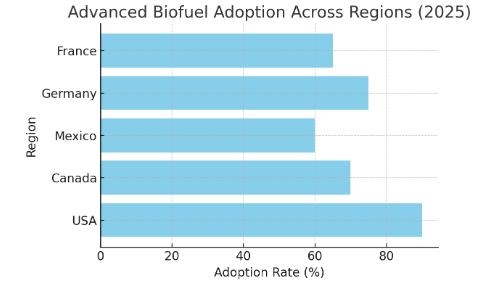
Competitive Landscape
The competitive landscape for advanced biofuel production is led by established companies such as DuPont, POET, and BP, which have invested heavily in developing advanced biofuel technologies and scaling up production. New entrants, particularly from the fintech and cleantech sectors, are innovating in feedstock logistics, conversion efficiency, and cost reduction methods. As the market grows, competition is expected to intensify, with key players vying for market share through innovative products and technologies.
Report Details
Proceed To Buy
Want a More Customized Experience?
- Request a Customized Transcript: Submit your own questions or specify changes. We’ll conduct a new call with the industry expert, covering both the original and your additional questions. You’ll receive an updated report for a small fee over the standard price.
- Request a Direct Call with the Expert: If you prefer a live conversation, we can facilitate a call between you and the expert. After the call, you’ll get the full recording, a verbatim transcript, and continued platform access to query the content and more.


68 Circular Road, #02-01 049422, Singapore
Revenue Tower, Scbd, Jakarta 12190, Indonesia
4th Floor, Pinnacle Business Park, Andheri East, Mumbai, 400093
Cinnabar Hills, Embassy Golf Links Business Park, Bengaluru, Karnataka 560071
Request Custom Transcript
Related Transcripts


68 Circular Road, #02-01 049422, Singapore
Revenue Tower, Scbd, Jakarta 12190, Indonesia
4th Floor, Pinnacle Business Park, Andheri East, Mumbai, 400093
Cinnabar Hills, Embassy Golf Links Business Park, Bengaluru, Karnataka 560071





